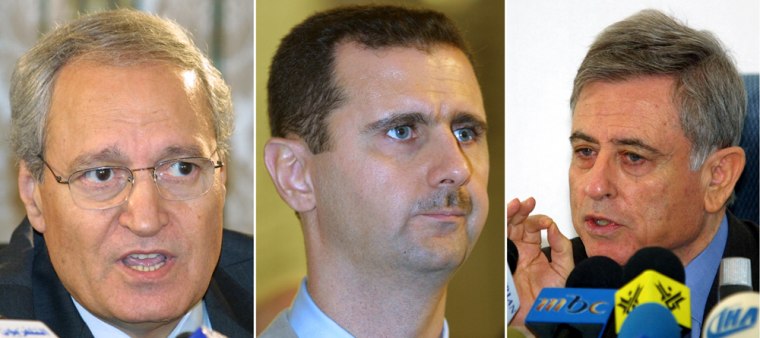The U.N. commission investigating the assassination of a former Lebanese leader has asked to interview Syrian President Bashar Assad and Foreign Minister Farouk al-Sharaa, the commission's spokesperson said Monday.
"The commission will also seek to interview (former Syrian Vice-President) Abdul-Halim Khaddam as soon as possible," the spokesperson said, referring to the man who alleged in TV interview broadcast Friday that Assad had threatened former Lebanese Prime Minister Rafik Hariri several months before he was assassinated in a Feb. 14 truck bombing.
The commission, whose mandate was recently renewed the U.N. Security Council for another six months, has reported that several people whom Hariri spoke to after he met Assad in August 2004 said the Syrian leader had threatened the Lebanese prime minister over the issue of Syrian plans to extend the term of Lebanon's president.
Syrian officials, such as Foreign Minister Farouk al-Sharaa, have denied any threat was made.
"The U.N. commission has already sent a request to interview Syrian President Bashar Assad and Foreign Minister Farouk al-Sharaa, among others," the spokesperson told The Associated Press. "The commission is waiting for a response from the Syrians," the spokesperson added.
The spokesperson refused to say when the request to interview Assad was made.
Earlier reports accuse Syrians
In two interim reports published late last year, the commission accused Syrian and Lebanese intelligence officials of being involved in the killing of Hariri. In an interview with the media, the outgoing commission chairman, Detlev Mehlis, has said the Syrian "authorities" were behind the assassination.
Syria has repeatedly denied the charge and has tried to discredit those who testified to the commission.
The assassination of Hariri, in a blast that killed 20 other people in central Beirut, was a turning point in modern Lebanese history.
As he was seen as a quiet opponent of Syrian influence in Lebanon, his killing provoked mass demonstrations against Syria.
Combined with international pressure on Syria, these protests forced Syria to withdraw its troops from Lebanon in April, ending a 29-year military presence in the country.
